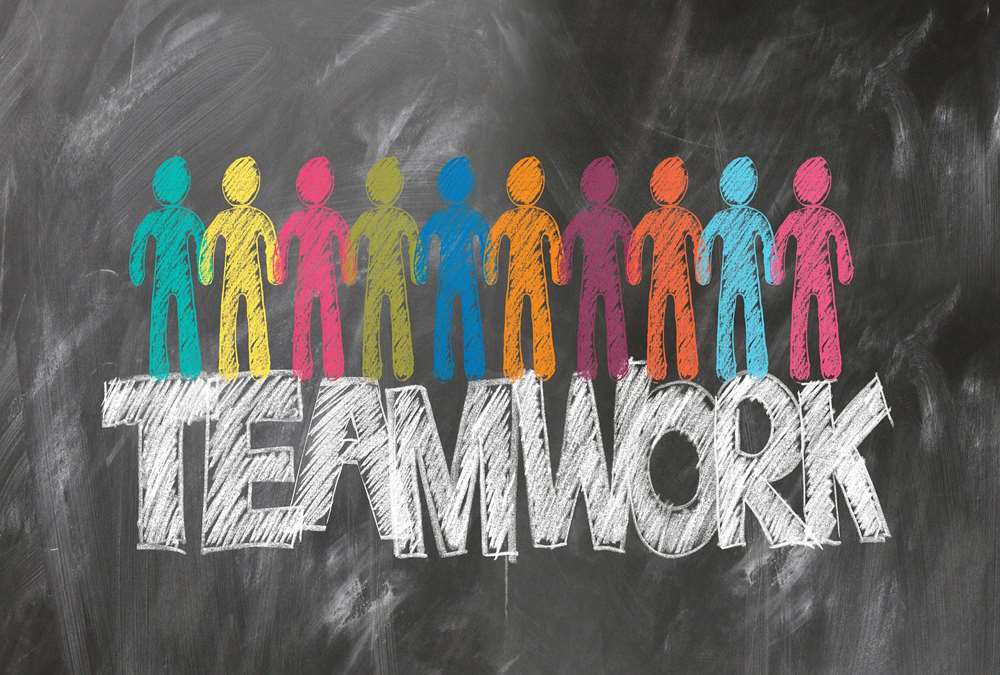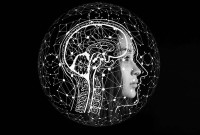
Defining Team and Teamwork
Teams are part of the modern organizational culture. Whether you are a team leader or a team member, having a better understanding of how teams work, and being able to identify where the team is in the process, is a critical part of ensuring the team is ultimately successful. Start with the basics and understand what a team is and what role they play in an organization.
Why We Need Teams?
If you visit an organization, you will find that most of the activities of the organization are performed by a group of persons. Most of the work in organizations is done in teams. In an organization, activities are arranged in such a way that requires collective contribution. In fact, new organizations can be described as composed of teams.
In modern organizations, individuals are required to work in different types of teams. Even though individuals are important, their effectiveness depends, to a large extent, on the teams of which they are members. Every individual contributes to the achievement of a common goal. The individuals interact, collaborate, coordinate, and influence among the members. Thus, most of the time individuals work in a team.
Difference Between Groups and Teams:
A team consists of individuals. However, the collection of individuals in a place may be only a crowd. When individuals come together for certain tasks, then we have the formation of a group. A group is not necessarily a team. A group can have individuals with varied interests, attitude as well as thought processes. It is not necessary that the group members would have a common objective or a common goal to achieve. Let’s define these terms.
What is a Group?
The main function of a group is to exchange task-related information and discuss task-related issues. The accountability in the group Building Roles and Teams remains of the individual. Each individual brings his/her competencies as well as the relevant information related to the task. Thus the group can be defined as a collection of individuals working in face-to-face relationships to share information and resources for a task to be achieved.
Group V/s Team:
The team is qualitatively different from the group in several ways. The team functions almost like an individual. In other words, the team is accountable for results; collective responsibility is taken. There is mutuality and complementarity of the members of the team. The most important characteristics of a team are that it creates synergy, i.e., the performance of the team is more than the collective performance of the individual members. Hence, A team can be defined as a group of individuals working in a face-to-face relationship for a common goal, having collective accountability for the outcome of its effort.
Difference between Groups and Teams:
|
Attribute |
Group / Work-Group |
Team |
|
Purpose |
Same as that of Organization |
Teams could be created for a specific purpose, distinct from that of the organization |
|
Work Products |
Individual |
Collective |
|
Process |
Discuss, decide, delegate |
Discuss, decide, do |
|
Leadership |
A single leader |
Shared Leadership |
|
Meeting |
Efficient |
Open, Problem Solving |
|
Accountability |
Individual |
Individual and Mutual |
|
Performance |
Performance typically depends on the work of individual members. |
Performance depends on both individual contributions and collective work products- the joint outcome of team members working together |
|
Responsibility |
Members of groups do not take responsibility for any results other than their own, although they do pool their resources to attain a goal |
Each team member shares responsibility for the team outcome. |
|
Goal |
Groups share a common interest goal |
Teams share a common interest goal plus a common commitment to purpose which supplies a source of meaning and emotional energy to the activities performed. |
|
Evaluation |
Indirect (Eg. Financial) |
Direct (Collective Work Product) |
Definition - What is a Team?
A team may be defined as a group of two or more people who interact and influence the members for the achievement of a common goal. A team is a group of individuals, all working together for a common purpose. The individuals comprising a team ideally should have common goals; common objectives and they should be compatible with each other.
"A team is a small number of people with complementary skills who are committed to a common purpose, performance goals, and approach for which they are mutually accountable." - Katzenbach and Smith, 1993
“A team is groups of two or more people who interact and influence each other, are mutually accountable for achieving common objectives, and perceive themselves as a social entity within an organization.” - Steven and Mary Ann Von
A team is defined as a reasonably small group of people, who:
- Are committed to a common purpose
- Hold themselves mutually accountable for achieving a clear and identifiable set of goals
- Mayor may not have complementary skills
Characteristics of a Team:
Based on this definition given above, the characteristics of the teams may be elaborated as under:
- A group of two or more persons
- Having regular interactions among members
- Ability to influence the behavior of team members
- Members are mutually accountable
- Members are interdependent
- They together form a social entity
- Work towards the achievement of common goal Each member’s contribution is as important as any other member’s contribution
- Congruence between the achievement of individual goals and that of the team goal
The frequency of interactions, influence, and the nature of tasks may determine the formation of a group, i.e., long-term, short-term, formal, informal, etc. Many new managers and supervisors reading this article will be taking over the management of an existing team rather than bringing together a new one. However, understanding these basics will help you put together your ideal team if you had the opportunity. This will help you fully understand the issues you may face.
Each individual is a contributor and brings a set of skills and knowledge to the organization. When we bring those individuals together, there is a wider range of skills and experience, and as a leader, you are able to come up with even better solutions.
Related Links
You May Also Like
-

Recognizing Stress & its Sources
As an individual, you almost certainly know what stress feels like. Stressors are events or situations to which people must adjust. Stressors may be physical or psychological in nature. The level of severity of stress is determined not merely by exposure but the intensity, duration, and frequency of stressors. The sources of stress are many. They arise from multiple areas both with the individual and from the environment.
-

How often do you have a plan for how you are going to spend your day but you aren't able to complete the tasks on your plan because of unimportant tasks, interruptions, or your own procrastination? Wouldn't it be great to be able to manage your schedule and your time while avoiding, or at least controlling, these time stealers? Learn the strategies to manage your schedule while still handling interruptions and demands on your time.
-

In this study of power, Raven identified five bases of power as coercive, reward, legitimate, referent, and expert. The 5 Types of Power can help you decide when it is appropriate to use a particular type of power in important situations. Leadership involves authority and it is very important for leaders to understand what type of power they're using.
-

Stress is an essential part of our life. No one can live without stress. Stress can be beneficial as well as harmful. Stress as a positive influence adds excitement and hope while as a negative influence it can result in destructive feelings, anger, and depression. Although the general orientation to stress is to consider unfavorable outcomes, yet one must have observed that stress experiences may also facilitate the development of effective and varied coping behavior, increased personal resources, and lead to a sense of competence in development. Stress at a moderate level is not only inevitable but may be useful for physical and mental well-being.
-

Authentic leadership is an approach to leadership that emphasizes building the leader's legitimacy through honest relationships with followers which value their input and are built on an ethical foundation. The authentic leader acts upon his or her values and beliefs, and inspires others to do the same, is committed to know and develop oneself. Are you committed to developing yourself; know your motivations and the purpose of your leadership? Read this article to know more about authentic leadership style and discovering your authentic self.
-

Generating Ideas using Brainstorming
The brainstorming technique was developed by Alex F. Osborn in 1957 and brainstorming means where a team of members generates a large amount of alternative fruitful ideas on a specific problem without any criticism and then evaluates each idea in terms of their pros and cons. Brainstorming techniques fall into four broad categories: visioning, exploring, modifying, and experimenting.
-

A good leadership style is something that every effective leader must have in order to succeed, but identifying what that entails or does not entails might be difficult to understand. Most of the research on leadership focuses on the exemplary, best practices, and positive attributes of effective and successful leaders. This article talks about a new approach to learn leadership using lessons from bad leadership. That is the lessons to be learned by examining leaders who have not effectively exercised their power, authority, or influence.
-

Have you ever noticed how we express ourselves or interact with each other? Have you ever wondered what communication is and what role it plays in our lives? One may wonder if communication is so omnipresent and integral to our lives, why study communication at all? We need to study communication because it is a complex process that consists of many elements and is also beset with a number of barriers and there is a need to remove the barriers so that the communication process is effective.
-

Effective Business Communication
Communication is all about getting the message across correctly. To make this happen, you need to have good speaking skills and good writing skills. If you have these skills coupled with good listening skills and interest in reading, you have all the potential to be a good communicator. What things should the leader take into consideration to be more effective with interpersonal communication?
-

The development of teams is an ongoing process because the composition of the team may keep on changing. The new members may join and the old members may leave the team. The team members pass through several stages for the development of the team and there has been a lot of research to identify these stages. In this article, we discuss the common theories of team development.